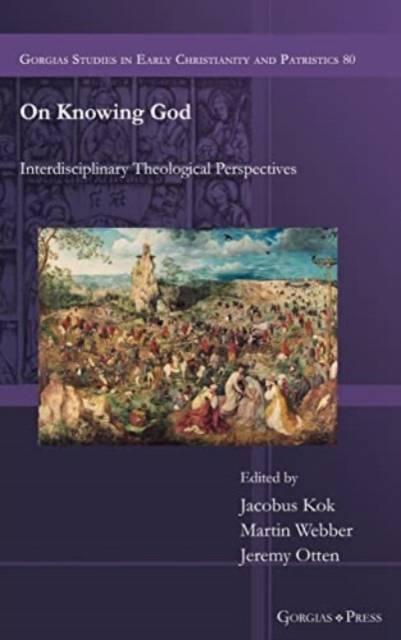
- Retrait gratuit dans votre magasin Club
- 7.000.000 titres dans notre catalogue
- Payer en toute sécurité
- Toujours un magasin près de chez vous
- Retrait gratuit dans votre magasin Club
- 7.000.0000 titres dans notre catalogue
- Payer en toute sécurité
- Toujours un magasin près de chez vous
Description
This book explores the concept of Knowing God and the Knowability of God from an interdisciplinary theological perspective, against the backdrop of celebrating 500 years of Reformation. Approaching the issue from the perspectives of their respective theological disciplines, contributors reflect on what it means to know God, how people of faith have sought to know God in the past, and indeed whether, and to what extent, such knowledge is even possible. The project team approached scholars from different disciplines in theology, affiliated with the Evangelische Theologische Faculteit, Leuven in Belgium, to reflect on the topic. This provided the faculty with the opportunity for fruitful interdisciplinary collaboration and reflection as we attempted to look at the same topic from the vantage point of our own subject and expertise. Although we all come from the same institution, and are bounded by our common motto Fides Quaerens Intellectum, we have allowed ourselves to roam freely within the flats of the castle of theological inquiry and have enjoyed meeting each other in the courtyard and beautiful gardens on the occasion of our interdisciplinary seminars each year. The authors do not promise to provide in this book a coherently designed interdisciplinary approach. The authors promise to show you the beauty of each of our disciplinary rooms within the castle. The authors also show you their own dialogicality, and even paradox, but also their own dialogical harmony. This book will be of utmost value to anyone seeking to explore the question of 'Knowing God', or even the 'Knowability of God', from the perspective of all the main classical subdisciplines in theology (e.g. Old and New Testament Studies; Church History; Systematic Theology; Practical Theology and Missiology).
Spécifications
Parties prenantes
- Auteur(s) :
- Editeur:
Contenu
- Nombre de pages :
- 320
- Langue:
- Anglais
- Collection :
- Tome:
- n° 80
Caractéristiques
- EAN:
- 9781463244620
- Date de parution :
- 30-11-22
- Format:
- Livre relié
- Format numérique:
- Genaaid
- Dimensions :
- 152 mm x 229 mm
- Poids :
- 594 g

Les avis
Nous publions uniquement les avis qui respectent les conditions requises. Consultez nos conditions pour les avis.






